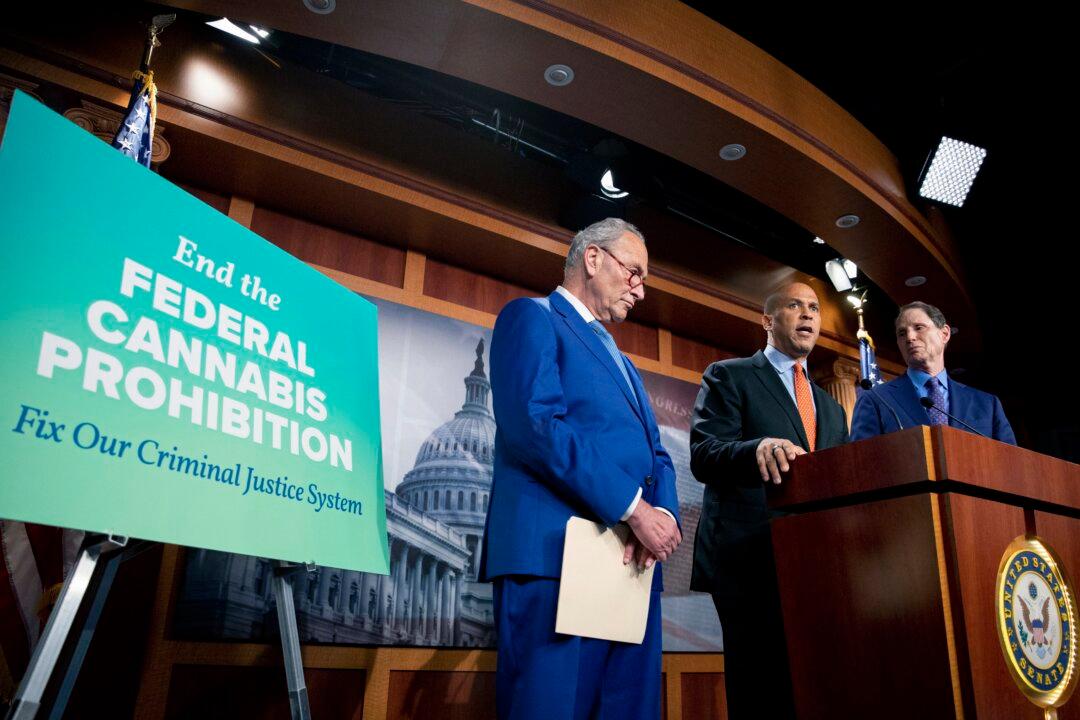Senate Democrats introduced draft legislation on July 14 that would legalize marijuana in the United States.
“We are joining together to release draft legislation to end the federal prohibition on cannabis. This is monumental because, at long last, we are taking steps in the Senate to right the wrongs of the failed war on drugs,” Senate Majority Leader Chuck Schumer (D-N.Y.) told reporters on Capitol Hill in Washington.





